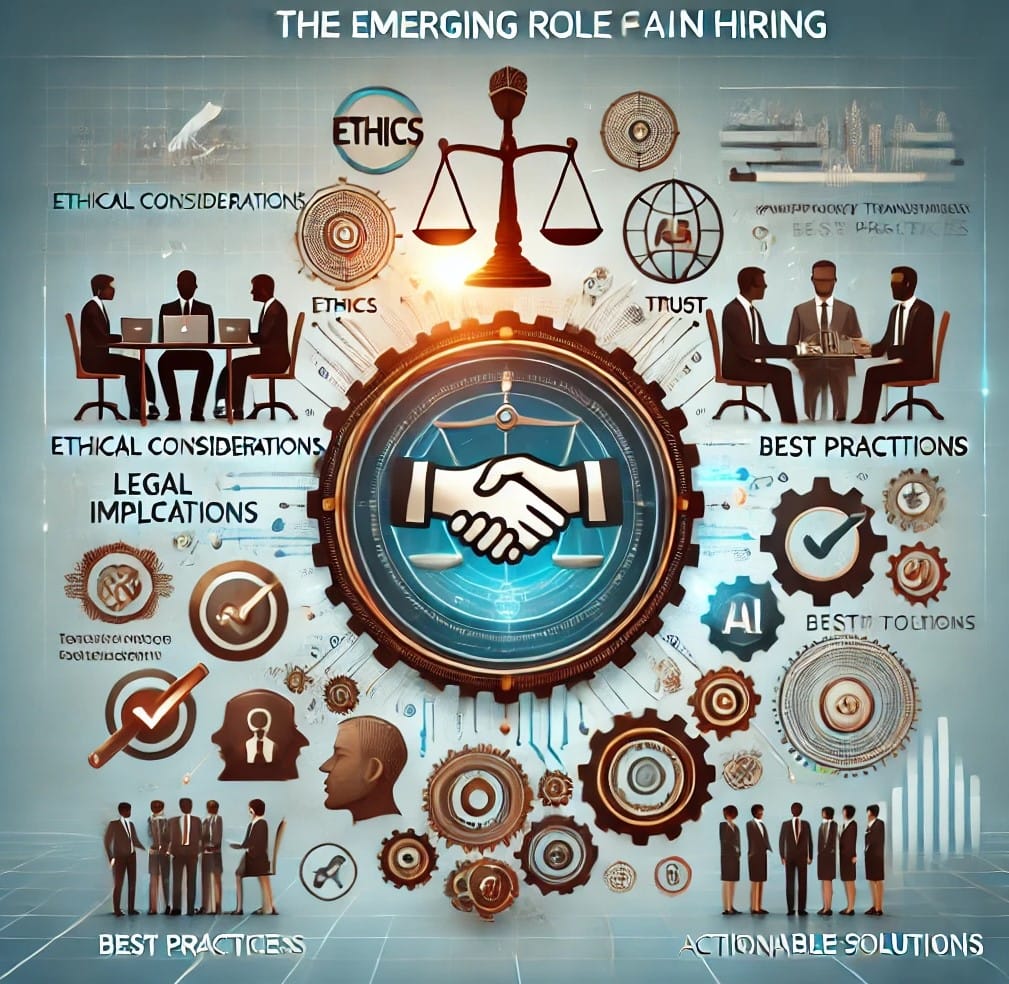The Emerging Role of AI in Hiring – Part 2
While AI promises efficiency and objectivity, its deployment must align with ethical standards to ensure fairness, transparency, and respect for candidates’ rights.
While AI promises efficiency and objectivity, its deployment must align with ethical standards to ensure fairness, transparency, and respect for candidates’ rights.

Incorporating artificial intelligence (AI) into hiring processes raises profound ethical questions. While AI promises efficiency and objectivity, its deployment must align with ethical standards to ensure fairness, transparency, and respect for candidates’ rights. This section delves into the core ethical considerations that must guide the integration of AI in hiring.
AI systems are only as unbiased as the data they are trained on. If historical hiring data contains biases—favoring specific genders, ethnicities, or educational backgrounds—AI can perpetuate or even exacerbate these inequalities.
Key Ethical Concerns:
Solutions:
Candidates deserve to know how decisions are made during the hiring process, especially when AI plays a role. Lack of transparency can undermine trust and create perceptions of unfairness.
Key Ethical Concerns:
Solutions:
The data AI uses to evaluate candidates often extends beyond resumes to include online profiles, publications, and even behavioral patterns. This raises concerns about the ethical use of personal information.
Key Ethical Concerns:
Solutions:
AI excels at streamlining repetitive tasks but may risk dehumanizing the hiring process if used excessively. Ethical hiring practices must prioritize the candidate experience.
Key Ethical Concerns:
Solutions:
With AI making recommendations, it’s easy for decision-makers to shift responsibility to the algorithm. However, ethical hiring requires that humans remain accountable for final decisions.
Key Ethical Concerns:
Solutions:
AI in hiring can be a powerful ally, but only if used responsibly. HR professionals, recruiters, and leaders must:
By approaching AI with ethical rigor, organizations can leverage its strengths while safeguarding the rights and dignity of every candidate. This ensures that technology serves humanity, not the other way around.
Contact: peter@fullspectrumleadership.com
Peter Comrie of Full Spectrum Leadership-
Tags: #AI, #AI Integration. #Leadership, #Future of AI, #Peter Comrie